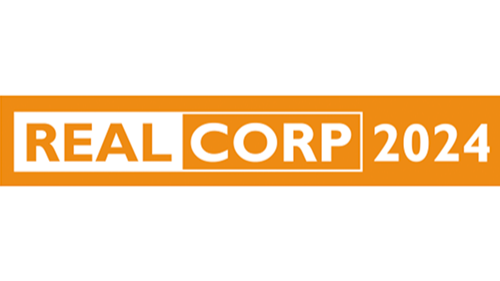29th International Conference on Urban Planning and Regional Development in the Information Society GeoMultimedia 2024
The Call for Papers is open
Since the beginning of industrialisation, the concentration of greenhouse gases in the atmosphere has been steadily increasing due to human influences. Currently, an increase of greenhouse gases in the atmosphere of almost 50 percent compared to the level of pre-industrialisation has been recorded. Without taking into account the increase in greenhouse gases in the atmosphere, the observed warming of the climate system cannot be explained. The problem of climate change is therefore caused by humanity itself and can therefore be counteracted by humanity itself. However, this is a long-term process with a high investment of resources with very limited immediate, short-term results – so it seems little wonder that it is only getting off the ground very slowly.
It is, therefore, all the more important to take selective countermeasures wherever possible. If measures against climate change are combined with modern technologies, additional short-term effects can be achieved, such as an increase in the (urban) quality of life, a mitigation of traffic problems or savings through reduced resource consumption. These and other aspects can be achieved under the umbrella of the Smart City, and Mannheim has decided to become a Smart City and is on a successful way: as the first German city, Mannheim received the #EUMissionLabel as part of the “100 climate neutral and smart cities by 2030” programme by the EU Commission.
But what does this step mean for the citizens on the one hand, and for planning and administration on the other? Smart Cities use the potential of digital technologies and intelligent data networks to increase the quality of life simultaneously moving into the future in a resource-saving and efficient way.
Smart cities collect vast amounts of data, which can be used to inform policy making and city planning leading to more effective urban and regional governance. Also the economic aspect must be considered as Smart Cities can attract investments and businesses, creating job opportunities and stimulating economic growth. They can also foster innovation and entrepreneurship through technology hubs and incubators. This contributes to the development of services by delivering public services more efficiently, such as healthcare, education, and public safety. This enhances the overall well-being of residents and can contribute to social development.
Conference Topics
- Contributions of Urban and Spatial Planning to Tackle the Big Challenges of the Future
- Smart City in General: Use and Benefits of Smart City Strategies
- Smart Mobility: Enhancing Today’s Mobility Systems for Tomorrow
- Smart Resilience: How to Prepare our Cities for New Challenges
- Smart Efficiency: On Responsible and Economical Use of Resources
- Smart Technologies and Information Infrastructure: What lies Behind the Agendas of a Smart City and Keeps it Running
- Artificial Intelligence in Urban and Spatial Planning
- Nature-Based Solutions: How Natural Mechanisms can be Used in Smart Cities and Urban Planning
- Smart City Shapes: Adoptive, Multi-Functional Urban Spaces for a better Quality of Life
- Fighting Climate Change: the Environmental Impact of Planning – from Urban Microclimates and Heat Islands to Long-term, Large-scale Measures
- Urban Regeneration and Revitalisation: Making older Urban Quarters Fit for the Future
- Public Well-Being: How to Increase Well-being and Satisfaction of the Population
- The Urban and the Country Side: What can they Learn from Each Other?
- Accessible Cities and Spaces: Not only a Benefit for People with Disabilities
- Special Topic: Ageing Smart – Designing Spaces Intelligently
- Special Topic: Deployment of Smart City Technologies in Africa
For all these topics REAL CORP 2024 asks especially about
- The role of urban planning and related disciplines
- Digitisation and technological innovation
- Short term measures, long range perspectives
- Ongoing research, new ideas, best practise examples, case studies
Timeline
Submission of abstract until 30 December 2023Feedback on general acceptance until 15 January 2024Full paper for reviewing has to be submitted until 8 February 2024Double blind full paper review until 29 February 2024Final version of full paper for publication until 31 March 2024
(The final full paper for non-reviewed submissions needs to be handed in by 29 February 2024.)
Registration
To register and submit your abstract, please go to https://my.corp.at and sign up for conference participation. (If your abstract is not accepted, you may withdraw your registration free of charge. If your abstract is accepted, your registration is automatically confirmed.) As usual, all further information as well as all conference papers since 1996 are available at www.corp.at.
REAL CORP 2024 is a co-operation of
- CORP – Competence Center of Urban and Regional Planning, www.corp.at
- HDWM – University of Applied Management Studies, Mannhein, Germany, www.hdwm.de
- University of Applied Sciences Mannheim, Germany, www.hs-mannheim.de
- Netzwerk Smart Production, Mannheim, Germany, www.smartproduction.de
- RPTU – Rheinland-Pfälzische Technische Universität Kaiserslautern-Landau, www.rptu.de
- ISOCARP – International Society of City and Regional Planners, www.isocarp.org

